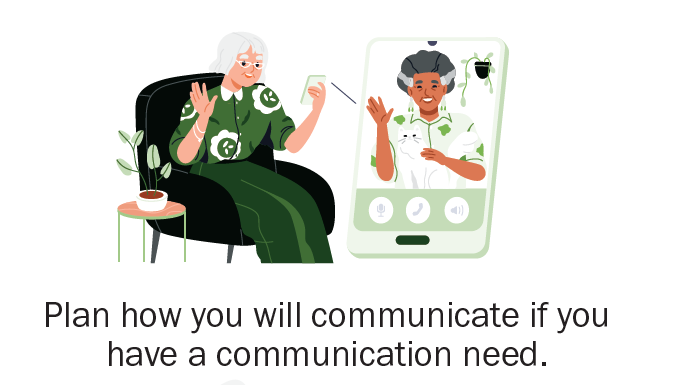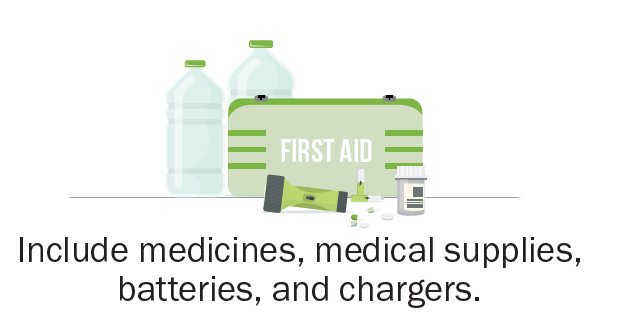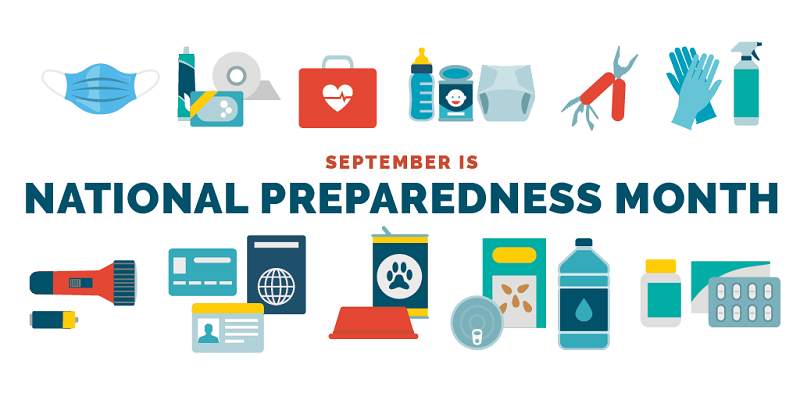National Preparedness Month
September is National Preparedness Month. How prepared are you for an emergency?
The theme of this year’s National Preparedness Month is “Take Control in 1, 2, 3,” with a focus on preparing older adults for disasters.
Older adults face greater risks from a multitude of extreme weather events and emergencies, especially if they live alone, are low-income, or have a disability.
As a result, older adults may have specific needs after a disaster. Here are some simple steps to help get prepared.
Be informed
- Know which disasters could affect your area that could call for an evacuation, know when to shelter in place, and plan what you need to do in both cases.
- Keep a NOAA weather radio tuned to your local emergency station and monitor TV and radio for warnings about severe weather in your area.
- Your property manager will post notices in the lobby of your building and automated phone messages may be sent about the weather hazard with instructions on how to stay safe.

Plan ahead
- Plan how you will communicate if you have communication needs. Click here for a form you can use to plan for how you will communicate with family during an emergency.
- Plan for food, water, and essentials for you and pets or service animals.
- Plan for your transportation if you need help evacuating and how you will maintain your assistive devices during an evacuation.
- Include items that meet your individual needs (such as medicines, medical supplies, batteries, and chargers) in your emergency supply kit. Also include copies of Medicaid, Medicare, and other insurance cards.

- Determine any special assistance you may need and include plans for that assistance in your emergency plan. Click here for information about planning for people with disabilities.
- Create a support network of family, friends, and others who can assist you during an emergency. Provide at least one person in your support network with access to your home for emergency purposes, ensure they know where you keep your emergency supplies, and know how to use life-saving equipment and administer medicine, if needed.
- If you undergo routine treatments administered by a clinic or hospital, find out their emergency plans and work with them to identify back-up service providers.
- For more information on preparedness for older adults, visit Older Adults | Ready.gov.

